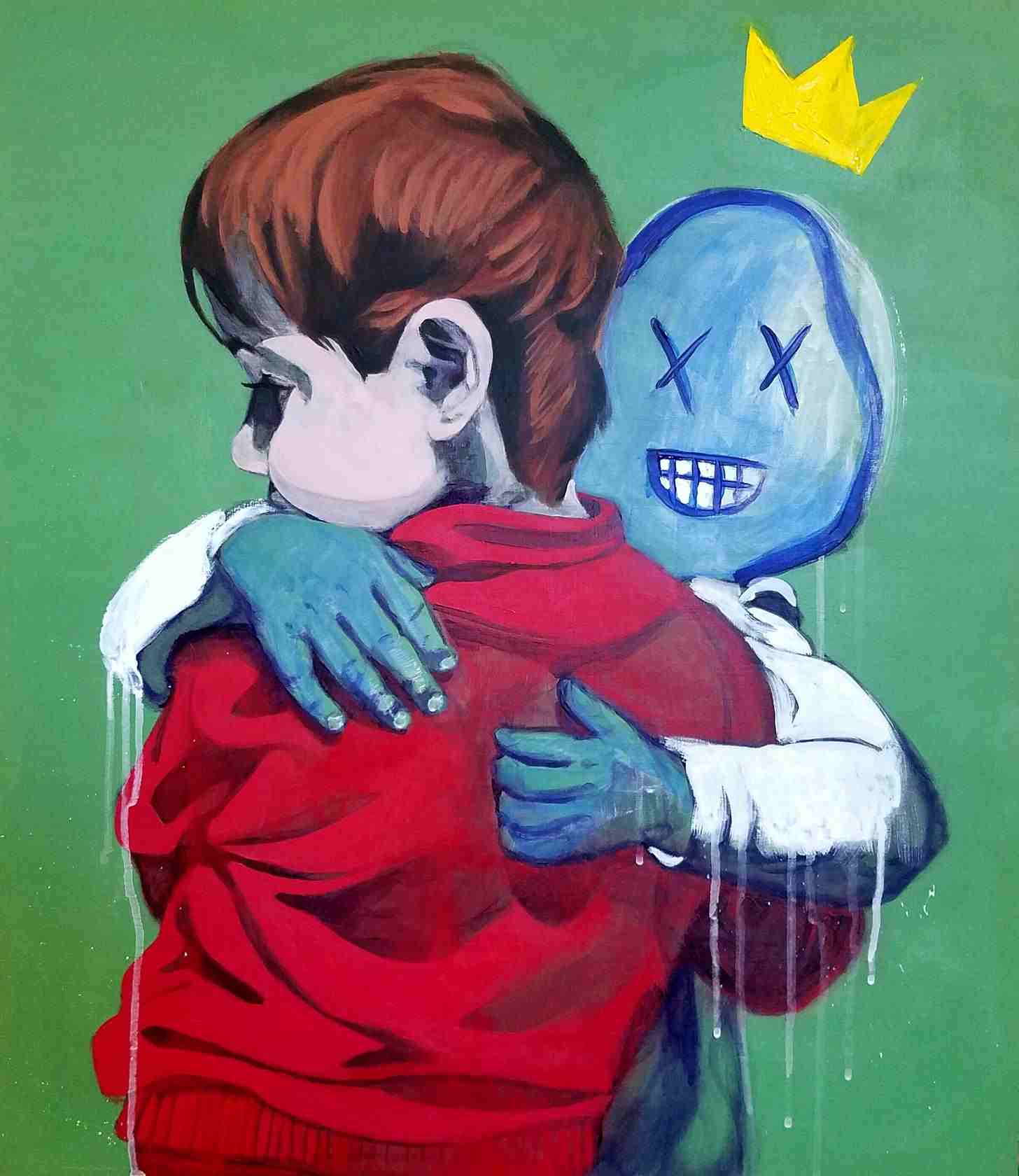Do you have an imaginary friend? Many people do, and there’s nothing wrong with that. In fact, having an imaginary friend can be a good thing! This blog post will discuss what imaginary friends are, why we need them, and how they can benefit us. We’ll also explore some of the different types of imaginary friends people often have. So if you’re curious about this topic, keep reading!
Contents
Who Are Imaginary Friends?
 Imaginary friends are a vital part of our lives. They provide us with companionship, support, and guidance when we need it most. Though they may not be real. They play an important role in our psychological development.
Imaginary friends are a vital part of our lives. They provide us with companionship, support, and guidance when we need it most. Though they may not be real. They play an important role in our psychological development.
It is very common for children to have imaginary friends. In fact, studies show that almost half of all kids will create imaginary friends. This usually happens during the pre-school years.
These friends can take on many different forms. They may be animals, creatures, or people. Often, they represent aspects of the child’s personality or inner world.
Reasons For Having An Imaginary Friends?
People create imaginary friends for their sake. Each group of people has their own reasons for doing so. But the general idea or reason for creating imaginary friends. It is a way for people to cope with their problems. It helps them to feel better about themselves and their situations.
Creating imaginary friends is a way for children to deal with new or difficult situations. It allows them to work through their feelings in a safe and controlled environment. For example, if a child is starting at a new school. They may create an imaginary friend to help them cope with the change. Adults can also benefit from having imaginary friends.
It can be a fun and creative way for people to express themselves. It allows them to create someone who is entirely their own. This person can be anything that the creator wants them to be. They can be a friend, a mentor, or even a therapist. Imaginary friends often reflect aspects of the creator’s personality. So it can be helpful for people to explore these characters and what they represent.
Why Do People Need Them?
Many people believe that imaginary friends are only for children. However, recent studies have shown that adults also benefit from having imaginary friends. In fact, imaginary friends can help people in a number of ways.
Various Benefits Of Having Imaginary Friends

Imaginary friends can help people in a number of ways.
- An outlet for exploring new ideas: Imaginary friends can be a great way to explore new ideas and thoughts. Without feeling embarrassed or self-conscious. This is especially beneficial for children.
- Trying out different ways of thinking: Imaginary friends can also help you try out different ways of thinking and acting. This can be helpful if you’re feeling stuck in a rut. Or if you’re trying to make a major life decision.
- A tool for managing stress or anxiety: If you’re feeling stressed or anxious, talking to your imaginary friend can be a great way to help you relax.
- A source of support: Imaginary friends can also offer emotional support. They’re always there for you, no matter what. And they won’t judge you, no matter what you say or do.
- Providing company: Sometimes, all you need is someone to talk to. And imaginary friends are the perfect solution for times when you’re feeling lonely.
Imaginary friends can serve many different purposes in our lives. And they can be a valuable addition to our social lives. So if you’re thinking about getting one, go for it! You might just find that they’re exactly what you need.
Benefits of having imaginary friends usually outweigh the negatives. Some people believe that having an imaginary friend means a child is lonely. Or maybe has problems socializing. This isn’t always the case. In fact, many children who have imaginary friends are very socially active and well-adjusted.
In times of difficulty, such as when a family is going through a tough time. Or when a child is struggling in school. An imaginary friend can be a great source of comfort. And support for the child.
Is This Linked To Mental Illness?
Sometimes, people will create an imaginary friend to talk to or confide in. This is not generally seen as a sign of mental illness. But more as a coping mechanism or way of dealing with loneliness or stress.
More often people feel like they have someone to share their thoughts. And feelings with, which can be very beneficial.
However, some linked imaginary friends with schizophrenia. Where the person hallucinates their friend. But for most people, they are nothing to worry about. And simply a fun way to pass the time.
Schizophrenia is a serious mental illness. And where having an imaginary friend is not linked to it. So there’s no need to worry if you or your child has one.
When Do Imaginary Friends Become Problematic?
 Most imaginary friends are harmless. And can actually be beneficial for children. However, in some cases, they can become problematic. If your child’s imaginary friend is preventing them from interacting with other children. Or participating in activities, it may be time to talk to a professional.
Most imaginary friends are harmless. And can actually be beneficial for children. However, in some cases, they can become problematic. If your child’s imaginary friend is preventing them from interacting with other children. Or participating in activities, it may be time to talk to a professional.
In addition, if your child is older. And still has an imaginary friend. It may be indicative of a more serious problem. Because these fantasy world friends are mostly associated with young children. In that case, it would be best to consult with a mental health professional.
Some people believe that imaginary friends are a sign of creativity and intelligence. While others believe they are a sign of social isolation or even schizophrenia. The truth is, we don’t really know why some children create imaginary friends. And there is no one answer to this question.
However, imaginary friends can provide comfort and support to children during difficult times. They can also help children learn how to interact with others. And develop their imagination and creativity.
So, it’s important to keep an eye on your child’s imagination friends. If you feel like they are becoming problematic. It’s also important to appreciate all the positive things they bring to your child.
Limitations Of Having Imaginary Friends
On the one hand, people must appreciate the benefits that they offer. But, should be aware of the limitations of it.
- Imaginary friends can never provide the level of companionship that humans need. They are not living, breathing creatures that can offer emotional support or physical affection.
- They cannot engage in conversation or activities with their human friend.
- Even, they can encourage people to avoid social interaction.
- If someone spends all their time talking to their imaginary friend. They may have trouble communicating with real people.
- People with imaginary friends have difficulty coping with difficult situations. Or transitions in life.
Despite these limitations, these friends offer many benefits that should not be overlooked. They can help people to work through difficult emotions or problems.
They can also provide a sense of security and comfort during difficult times. And, they can act as a sounding board for new ideas or plans. Ultimately, the decision to have an imaginary friend is a personal one. But, people should be aware of the benefits and limitations of having them.
When To See Doctor?
 Although having an imaginary friend is not harmful. But, it is important to take care. If that imaginary friend is very real to the person. To the point where they become anxious or upset when talking about them. It might be time to see a doctor. It could be a sign of an underlying mental health condition that needs to be addressed.
Although having an imaginary friend is not harmful. But, it is important to take care. If that imaginary friend is very real to the person. To the point where they become anxious or upset when talking about them. It might be time to see a doctor. It could be a sign of an underlying mental health condition that needs to be addressed.
If you are having thoughts of harming yourself or others. If you are feeling paranoid like people are out to get you. Or if you are hearing voices that other people can’t hear. These could all be signs that you need to see a doctor. There is a very thin line between fantasy and reality. And, sometimes it can be hard to tell which is which. If you are ever feeling unsure. It is always best to err on the side of caution and seek professional help.
Having an imaginary friend is not necessarily a bad thing. In fact, it can be quite normal. But, if you are ever feeling like you can’t control your imaginary friend. Or if they are starting to control you. It might be time to seek help from a professional.
Conclusion
Imaginary friends are okay to have. They can help us work through difficult times and give us someone to talk to. It is important, however, to make sure that our imaginary friend does not take over our life. We should also make sure that we do not ignore the people around us who could be a source of support in real life.
Henceforth, the next time you feel like you need someone to talk to. Don’t be afraid to reach out to your imaginary friend. But also don’t forget the people who are actually there for you.
A Word From Therapy Mantra
Your mental health — Your psychological, emotional, and social well-being — has an impact on every aspect of your life. Positive mental health essentially allows you to effectively deal with life’s everyday challenges.
At TherapyMantra, we have a team of therapists who provide affordable online therapy to assist you with issues such as depression, anxiety, stress, workplace Issues, addiction, relationship, OCD, LGBTQ, and PTSD. You can book a free therapy or download our free Android or iOS app.


